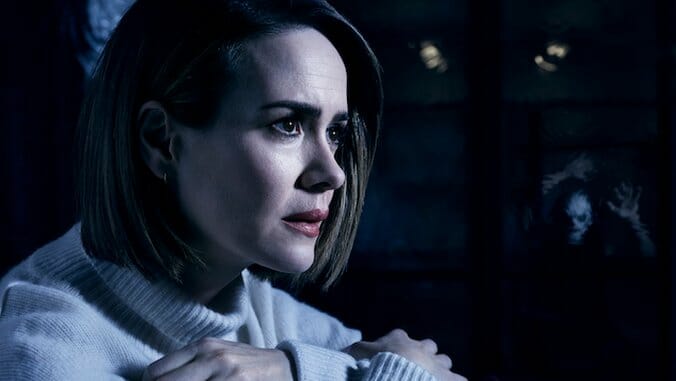The Frustratingly Empty “Politics” of American Horror Story: Cult
Photo: Frank Ockenfels/FX
Tonight’s American Horror Story features that distinctly American fear, the one that enters our timelines, our lives, under the name “active shooter.” Or, at least, it did: Though the original version will be available On Demand, as well as on the FXNOW and FX+ platforms, the network released a statement Monday confirming that its linear channel will air “Mid-Western Assassin” with “substantial edits,” out of respect for viewers who might find it “traumatic.” Creator Ryan Murphy’s decision to truncate the episode is unsurprising—BoJack Horseman’s savage satire of the pieties surrounding the nation’s plague of gun violence, “Thoughts and Prayers,” practically predicted it—but it speaks to the current season’s eagerness to engage “politics” without becoming “political.”
Cult, in line with the country in which it’s set, is fascinated by firearms; the seventh season of Murphy’s anthology series refers to Stand Your Ground laws, George Zimmerman and personal arsenals, and depicts multiple gun deaths in its first five episodes. Long before “Mid-Western Assassin” adds to the body count, then, American Horror Story’s woeful attempt to account for last year’s election—the season premiere finds star Sarah Paulson, as Michigan liberal Ally Mayfair-Richards, emitting a frightful scream at the news of Trump’s win—underscores its strange sensitivities. When it comes to the accidental killings, murders and suicides that comprise the lion’s share of American gun deaths, Cult seems unconcerned with the implications of their on-screen representation. Mass shootings appear to be where the series draws a red line.
-

-

-

-

-

-

-

-

-

-

-

-

-

-

-

-

-

-

-

-

-

-

-

-

-

-

-

-

-

-

-

-

-

-

-

-

-

-

-

-








































